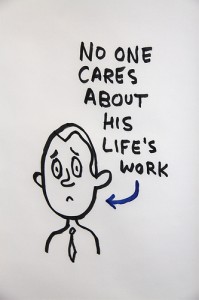
I’m sure you know that in 2005, Apple CEO Steve Jobs gave a very memorable commencement address at Stanford University. He told three stories about his life. The first was a lesson about “connecting the dots.”
He said that you can connect dots looking backwards, but you can’t connect them looking forwards. For that, he said, “you have to trust in something — your gut, destiny, life, karma, whatever.” According to Jobs, that trust, that faith, never failed him.
In the last twenty years, there have been dozens, if not hundreds, of studies to determine what makes entrepreneurs tick. Finding the answer is quite important, because it appears that entrepreneurs are a different breed compared to the rest of us (well, actually, I consider myself an entrepreneur), and, more importantly, they seem to be creating the most innovative products.
To identify the factors that make entrepreneurs who they are, researchers have looked at everything under the sun, including physiological, lifestyle and behavioral factors, birth order, parents’ marital status, age, and even religion. In the end, little of this made much difference.
Personal and family background and history did not prove to be significant. Neither did the way entrepreneurs were raised, where they lived, or the school they went to. There was no correlation with being rich, or being poor. In terms of skills or competence, nothing pointed clearly to entrepreneurship.
Some maintain that many great inventions happen more by accident. Well-known examples, like Velcro, Teflon, Penicillin, or the microwave oven, are usually cited.
Despite lack of research support, in Silicon Valley we favor personality traits: successful entrepreneurs are defined by words like passion, character, self-confidence, ambition, leadership, determination, resilience, adaptability, optimism, and motivation. These words are often used to describe entrepreneurial “spirit.”
In the Valley especially, entrepreneurial spirit is very real and highly prized. Companies of all sizes desperately want to capture it. It is a force that propels entrepreneurs forward with such determination that they are able to overcome seemingly insurmountable obstacles. Many believe that entrepreneurial spirit alone can mean the difference between success and failure for a new venture. There is plenty of anecdotal evidence to suggest this is true.
So it begs for a better definition. Was Steve Jobs giving us a clue when he was speaking at Stanford? When he was talking about trust in the future, a core ingredient in the way he lived his life, was he also talking about entrepreneurial spirit? Trust is different than personality traits like determination. It’s a belief system, like faith. Since he was a great entrepreneur, trust and faith in the future must certainly have played a role in his entrepreneurship.
I’ve interviewed a number of successful entrepreneurs and without exception they said they were searching for a way to leave their mark on the world. Maybe not using those words exactly, but they all wanted to make sure someone noticed and even cared about their time on this planet. I think that must have certainly been true for Steve Jobs.
How does this all fit together? Let’s agree that ideas are critical to success, but it’s the execution of ideas that create new opportunities. Ideas, in a vacuum, have no value. Anyone that has taken a long shower or driven down a long stretch of highway has had a marketable idea. I’d also venture to say lots and lots of people want to leave a mark, and a fair number of them are self-confident and determined. Very few, however, will drop everything and allow themselves to be totally consumed by their vision, continually executing against great odds, trusting only that that things will just work out.
